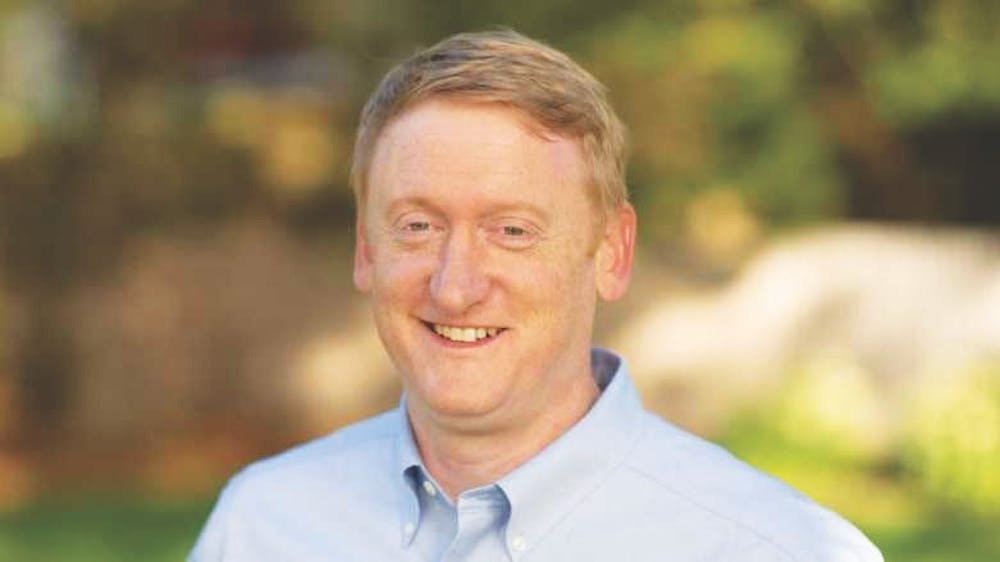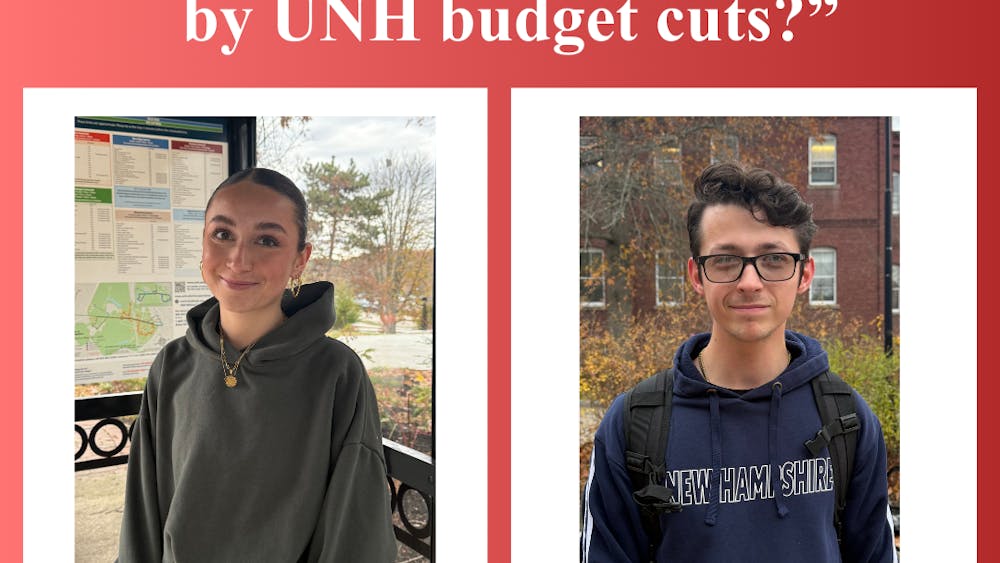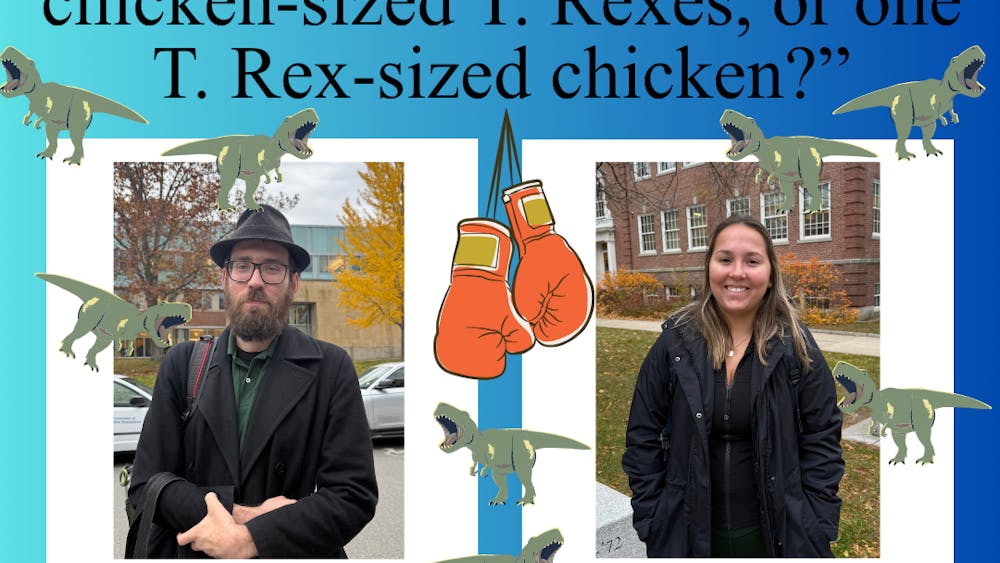Earlier in the year in February, young progressives across New Hampshire celebrated Sen. Bernie Sanders’ victory in the New Hampshire Primary. Sanders won New Hampshire with 76,324 votes – 25.7 percent of the electorate. It was a plurality, but it was a victory. Sanders’ win in New Hampshire couldn’t have happened without the enthusiastic support of New Hampshire’s abundance of young college voters, who consistently lean progressive.
This kind of youthful and progressive support is what gave life to Andru Volinky’s campaign for governor. A member of New Hampshire’s Executive Council and well-known in the state for his support of public education, Volinsky announced his campaign for governor in late October 2019, running as a progressive contrast to the party-preferred State Sen. Dan Feltes. Not only was Volinsky further to the left than Feltes on issues such as health care and climate change action, but he was able to get the right groups and the right people to make this clear to younger voters in New Hampshire. Volinsky earned the endorsements of the New Hampshire Youth Movement and the Sunrise Movement, two progressive activist groups focusing much of their work on climate change. He even won the endorsement of Bernie Sanders – Volinsky was one of the opening speakers to Sanders’ UNH rally featuring The Strokes the night before the NH presidential primary. Polls close to the state primary showed Volinsky and Feltes neck and neck, some with Volinsky even in the lead. But the endorsements and support of progressive voters wasn’t enough to edge the progressive candidate to the finish line. On September 8, Dan Feltes beat Volinsky handily by five percentage points, roughly 6,800 votes.
Volinsky was unable to capture the momentum that managed to give his biggest endorser, Sen. Sanders, a victory in New Hampshire. And the victor, Sen. Dan Feltes, has secured the Democratic nomination to go against Republican incumbent Gov. Chris Sununu in November, one of the most popular governors in the country – without the enthusiastic support of New Hampshire’s most progressive groups.
“I’m struggling to see a path to victory for him. Like, it’s hard for me to envision a way that he can actually win a majority of the folks in New Hampshire’s votes in November,” said Sayles Kasten, Co-Director of Organizing for the New Hampshire Youth Movement. NHYM endorsed Volinsky through an internal election of their members and did supplementary work for his campaign to turn out voters.
Ruby Carr, a member of NHYM on UNH campus said her hesitance for Feltes came from differences in political ideology: “Especially in comparison to Volinsky, [Feltes] seemed more moderate, which is definitely a weakness if you want to appeal to younger voters - which is kind of a struggle within the Democratic party right now because we’re trying to appeal to independents and moderates when really we need to appeal to younger people,” said Carr, who participated in Get Out the Vote efforts for Volinsky on UNH’s Durham campus.
Kasten doesn’t believe that Volinsky’s loss is because of massive philosophical disagreements between younger and older voters in New Hampshire: “I honestly think if you ask most people in New Hampshire if everyone should have health care they’re gonna say ‘Yes.’ It’s not a coincidence that our [positions] are popular,” continued Kasten.
Maria Smith-Lopez was a digital communications intern for the Volinsky campaign who decided to work for Councilor Volinsky because of his comprehension of issues that young people care about: “Climate change is obviously one of the foremost issues for a lot of people our age.” Smith-Lopez spoke highly of Volinsky’s awareness of the stakes involved in taking on climate change: “To me he’s the strongest candidate on this issue because he understands that 2050 isn’t acceptable [to reach zero fossil fuel emissions] … To enact these bold climate plans, part of that is you can’t prop up fossil fuels anymore, so he was the only candidate who never took any money from any fossil fuel corporation of any kind and he never supported in any way Liberty Utility’s efforts to expand New Hampshire’s reliance on fossil fuel.” Smith-Lopez’s comment on cutting emissions by 2050 not being bold enough is actually a goal Dan Feltes supports on the issues page of his website: “As governor, Dan will act swiftly to declare New Hampshire’s clean-tech economy open for business by implementing five common-sense measures, including committing to 100% clean energy by 2050…” It’s a perfect analogy for many of the disagreement’s progressives share towards Feltes – his incremental approach appears to them as a lack of commitment to tackling the issues they care about most.
With that said, Smith-Lopez was not opposed to supporting Feltes, and gave him credit for certain political stances: “If Andru hadn’t run, Dan would’ve been a very strong candidate in my eyes. Because through the primary, he’s worked on a lot of fantastic clean energy bills in the legislature. And although he supported incremental minimum wage increase, he still supports raising the minimum wage to $15 even if he has a different strategy getting there… So if he wins that’ll be very positive for New Hampshire’s future.”
When asked if he thinks the closeness of the election results shows a need to appeal to more progressive voters, Sen. Feltes emphasized his commitment as a candidate for people of every ideology in New Hampshire: “I really reject the label of being progressive, moderate or conservative, establishment or not establishment… That’s not what this is about to me, it’s public service,” said Sen. Feltes. Sen. Feltes spoke about his background growing up in a working family, and the work he did as a legal aid lawyer during the 2008 recession as evidence of his commitment to working people in New Hampshire. “It’s not their ideology or political affiliation, it’s their circumstance. And big corporations are doing just fine, even during COVID. You know who’s not? Working people and working families; seniors on fixed incomes. That’s who I’m looking out for, and that’s what this race is all about to me.”
Sen. Feltes also spoke about positions that he thinks will unite younger Volinsky voters going into the general election: “We support among other things getting rid of the criminalization of marijuana. It’s been a disaster, particularly for communities of color. We made progress on that at the state house, but the lone barrier is Chris Sununu… I am the candidate who supports marijuana legalization.” Feltes also pointed to his legislative work on green energy in the Senate, and his commitment to student debt relief if elected as governor. “You’ve got someone like me who stands up—as the youngest Senate Majority Leader in state history—stands up for our values, and on the other side you’ve got Chris Sununu who calls himself, in his own words, ‘A Trump guy through-and-through’… So don’t tell me that there’s not contrast here in this race. There’s a huge contrast. It’s night and day on these issues.”
Sen. Feltes is a far more progressive candidate than Gov. Sununu. It’s likely that young people will rally to support him, despite differences on executing similar goals. However, it’s yet to be seen how excited they’ll be to do so.
Photo courtesy of Feltes campaign.













